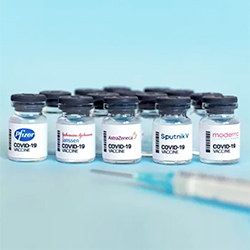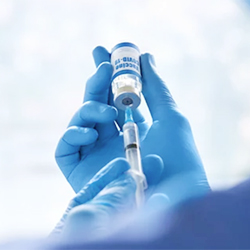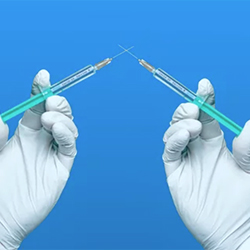By Landon Gray
Increased COVID-19 vaccine performance may be the result of mixing and matching different types of vaccines and boosters, according to data presented at the 2022 European Congress of Clinical Microbiology and Infectious Diseases.

A team of researchers led by Rafael Araos, MD, an internal medicine specialist, Institute of Science and Innovation in Medicine, Clínica Alemana, Universidad del Desarrollo, in Santiago, Chile, assessed Chile’s national COVID-19 vaccination program by observing the effectiveness of CoronaVac (Sinovac Biotech), AZD1222 (Oxford/AstraZeneca) and BNT162b2 (Pfizer-BioNTech) vaccine boosters in people who had received the complete two-dose CoronaVac vaccine—an inactivated SARS-CoV-2 vaccine. Compared with no vaccination accounts, CoronaVac is responsible for nearly 50% of COVID-19 vaccine doses distributed globally.
Researchers analyzed individuals who were administered vaccines from Feb. 2 to Nov. 10, 2021, excluding people with a probable or confirmed case of COVID-19 and those who had received at least one dose of any COVID-19 vaccine prior to Feb. 2, 2021. They were able to estimate the booster vaccines’ effectiveness by comparing lab-confirmed symptomatic COVID-19 cases and outcomes, such as hospitalizations, ICU admissions and deaths.
Out of more than 11 million eligible participants, approximately 4 million completed the primary two-dose vaccination schedule during the length of the study. From that population, 46.5% received a heterologous AZD1222 booster, 48.9% a heterologous BNT162b2 booster and 4.5% a homologous booster with CoronaVac.
Using statistical modeling, researchers were able to calculate adjusted vaccine effectiveness rates. Symptoms were prevented in 79% of cases where a homologous booster was administered compared with 97% for a BNT162b2 booster, and 93% for an AZD1222 booster.
“Our results suggest that a third dose of Coronavac or using a different booster vaccine such as Pfizer-BioNTech or Astra Zeneca vaccines in those that had previously had two doses of Coronavac provides a high level of protection against COVID-19, including severe disease and death. … However, receiving a different vaccine for the booster dose results in higher vaccine effectiveness than a third dose of Coronavac for all outcomes, providing additional support for a mix-and-match approach,” the study’s researchers said.
While several studies have found both heterologous and homologous booster doses are safe and immunogenic, the researchers stated this is the first study to examine the effectiveness of booster shots when applied to inactivated COVID-19 vaccines.
Although the inactivated vaccines offer low protection compared with the messenger RNA vaccines, the study’s researchers explained that booster doses are vital to increased vaccine protection. The government of Chile has been advising citizens to use heterologous boosters as the first option in vaccine scheduling.




